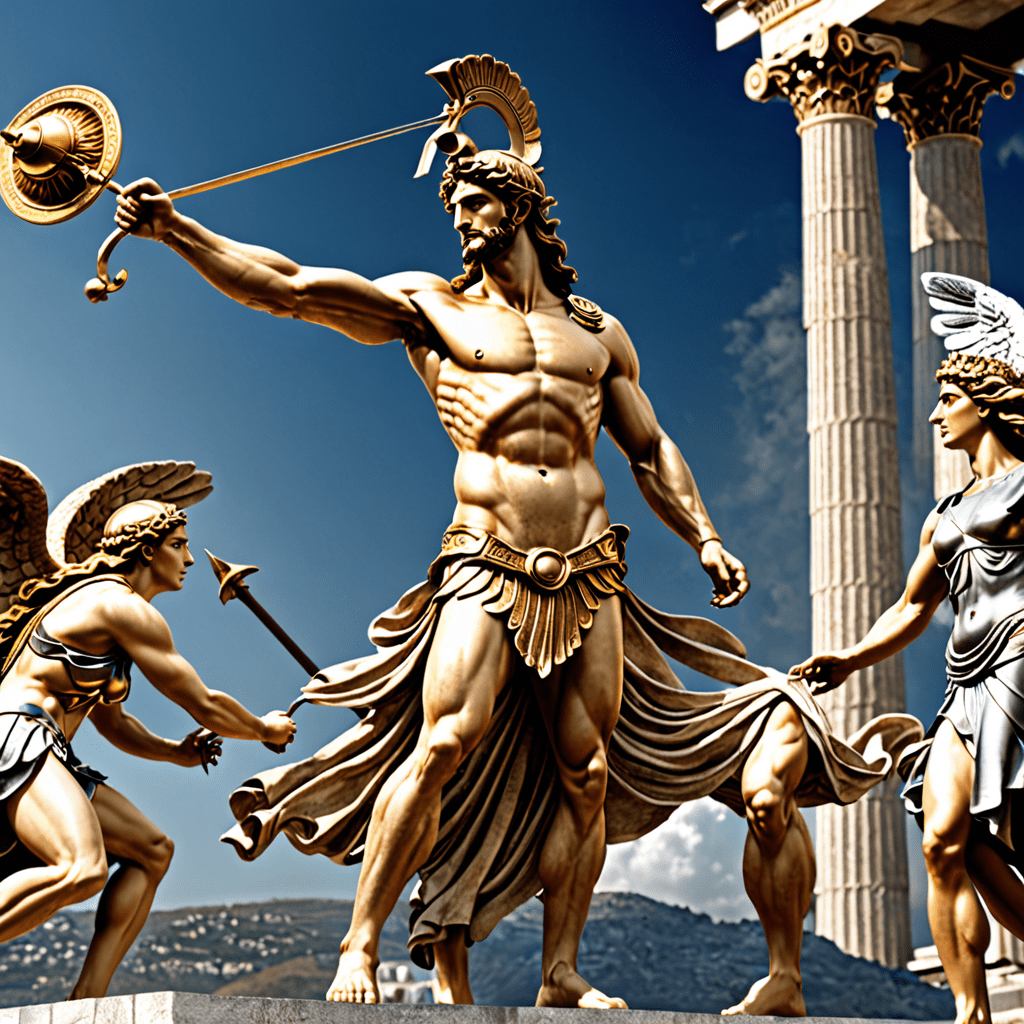Greek Mythology: Fact vs Fiction
Welcome to the enchanting world of Greek mythology, where gods, goddesses, heroes, and monsters abound. In this blog post, we will delve into the realm of Greek mythology, separating fact from fiction to unravel the truths behind these captivating tales.
Exploring the Origins of Greek Mythology
Greek mythology is a collection of myths and legends created by the ancient Greeks to explain the world around them. These stories were passed down orally from generation to generation before being recorded in written form. While some elements of Greek mythology are based on historical events, many are mythical in nature, blending reality with fantasy.
Fact or Fiction: Unraveling the Truths
As with any ancient tales, separating fact from fiction in Greek mythology can be a complex task. While some stories, such as the Trojan War and the Twelve Labors of Heracles, have roots in historical events, others, like the adventures of gods on Mount Olympus, are purely fantastical. It is essential to approach these myths with a critical eye, appreciating the symbolism and cultural significance they hold.
The Legacy of Greek Mythology in Modern Culture
Despite their ancient origins, the stories of Greek mythology continue to captivate audiences today. From literature to art, music to film, the influence of Greek myths can be seen throughout various aspects of modern culture. By understanding the nuances between fact and fiction in these myths, we gain a deeper appreciation for their enduring legacy.
In Conclusion
Greek mythology weaves a tapestry of intricate tales that have shaped our understanding of the world and ourselves. While some aspects may tread the line between fact and fiction, the timeless lessons and timeless themes woven throughout these myths continue to resonate with audiences across the globe. As we explore the realms of gods and heroes, monsters, and magic, let us remember that the power of these stories lies not only in their fantastical elements but also in the enduring truths they hold.
FAQs about Greek Mythology: Fact vs Fiction
What is Greek mythology?
Greek mythology refers to a collection of myths and stories originating from ancient Greece. These myths often involve gods, goddesses, heroes, and supernatural beings.
What is the difference between fact and fiction in Greek mythology?
Fact in Greek mythology refers to historical events or beliefs that have evidence to support them, while fiction relates to fictional tales created for entertainment or religious purposes.
Are all Greek myths based on facts?
No, not all Greek myths are based on factual events. Many myths were created to explain natural phenomena, teach moral lessons, or entertain audiences, blending elements of fact and fiction.
How can we distinguish between fact and fiction in Greek mythology?
Distinguishing between fact and fiction in Greek mythology can be challenging as some stories may have roots in historical events but have been embellished over time. Researching primary sources and cross-referencing myths can help separate fact from fiction.
Why is it important to understand the difference between fact and fiction in Greek mythology?
Understanding the distinction between fact and fiction in Greek mythology helps us appreciate the cultural, historical, and religious significance of these tales while also recognizing the imaginative and creative aspects that shape our understanding of ancient civilizations.



